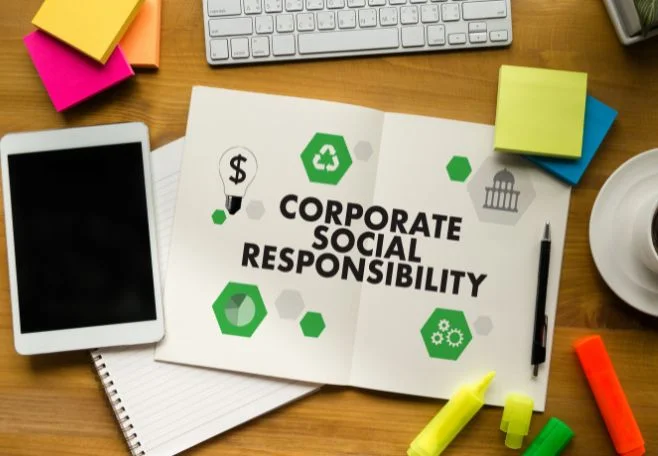
Office supplies constitute a significant investment for enterprises, typically accounting for 4%-6% of their total expenditure. These supplies encompass a wide range of items, including paper accessories, writing stationery, cleaning materials, and office education resources. In recent years, there has been a notable shift towards innovative methods that integrate environmental awareness and the use of eco-friendly alternatives in various office stationery supplies, significantly boosting the demand for sustainable office equipment.
Recycled Paper Products-Office Stationery
The adoption of recycled paper products is a pivotal step for companies looking to minimize their impact on the environment. These alternatives include envelopes, compostable paper cups, plates, and other essential office items. By choosing these substitutes, enterprises contribute to the reduction of paper waste and endorse a circular economy by reusing materials that would otherwise end up in landfills. Compostable paper cups and plates, derived from recycled paper, exemplify a feasible solution for office needs, ensuring a diminished environmental impact.
In essence, the incorporation of recyclable paper products into the office environment reflects a proactive approach by enterprises to reducing their ecological footprint. It represents a commitment to fostering a more environmentally friendly and responsible future.
Environmentally Friendly Pens and Pencils
The transition to environmentally friendly pens and pencils is a crucial step towards sustainable office practices. These eco-conscious substitutes advocate for the use of biodegradable materials, renewable resources, and recyclable components, offering a greener alternative for writing tools in the office setting.
Innovative writing tools designed with materials that decompose naturally, such as bamboo or corn starch-based plastics, ensure a reduced environmental impact when discarded. Refillable pens, as an effective alternative to disposable pens, contribute to substantial plastic waste reduction in office spaces. By refilling ink cartridges instead of disposing of the entire pen, companies enhance resource efficiency and minimize their carbon footprint.
Moreover, the use of 100% recycled newspapers for manufacturing pencils serves as a sustainable substitute for traditional wooden pencils. This not only repurposes waste materials but also diminishes reliance on wood resources, contributing to forest protection. The transformation of waste paper into functional writing tools supports the circular economy and underscores the sustainability of office supplies.
Stapler Without Nails
The introduction of staple-free staplers revolutionizes traditional paper binding technology. Unlike conventional staplers, these staplers operate similarly to punching machines, eliminating the need for metal staples.
Staple-free staplers employ a novel working principle, making a small cut on the paper and interlacing them together to form a secure binding without relying on metal pins or clips. This method significantly reduces waste generated by disposable metal staples, minimizing the environmental impact and the demand for new metal resources. Notably, staple-free staplers align with ecological awareness, advocating for sustainable development in the office environment. Additionally, they offer convenience and efficiency, allowing the binding of multiple sheets of paper without the need for carrying, loading, or rebinding staples.
Biodegradable Adhesive Tape
In many office environments, packaging departments use significant amounts of packaging tapes and materials in daily operations. Biodegradable adhesive tape, designed to decompose naturally, helps reduce transportation costs and actively minimizes the environmental impact of the packaging process.
Biodegradable Garbage Bag
Biodegradable garbage bags, typically made from plant-based materials like corn starch, vegetable oil, or compostable polymers, differ from traditional petroleum-based plastic bags. Their composition enables them to decompose into natural elements such as carbon dioxide, water, biomass, and organic matter in a relatively short time, contributing to a more sustainable treatment process compared to traditional plastic bags.
Given the daily production of waste in office settings, the use of biodegradable garbage bags ensures a sustainable waste management process without leaving harmful residues. This approach aligns with environmental protection methods and reduces the environmental footprint associated with waste management practices.
Non-Toxic Floor Cleaner
Non-toxic floor cleaners are formulated without harmful chemicals such as ammonia, chlorine, or synthetic spices. Instead, they contain natural and biodegradable ingredients, reducing their impact on the environment. While being non-toxic, these cleaners effectively remove dirt, stains, and grime, striking a balance between environmental safety and efficient cleaning.
These cleaners contribute to improved indoor air quality by eliminating harmful smoke and volatile organic compounds (VOCs) emitted by traditional cleaners. This enhances the overall working environment, creating a healthier space for employees.
Benefits of Green Office Supplies
Environmental Protection: The primary advantages include reducing the carbon footprint and alleviating the strain on natural resources. Using recyclable or biodegradable materials aids in waste reduction, energy conservation, and ecosystem preservation.
Waste Disposal Reduction: Recycling, reusing, or opting for biodegradable products significantly decreases the amount of waste sent to landfills, promoting a circular and sustainable economy.
Cost-Effectiveness: Over time, the use of green office supplies can lead to cost savings. Although some environmentally friendly products may have higher initial costs, they often provide long-term savings by reducing consumption, promoting reuse, and minimizing waste disposal expenses.
Improved Health and Safety: Many green office supplies, especially cleaning products, lack harmful chemicals, enhancing employee safety by reducing exposure to toxins. This contributes to improved indoor air quality and fosters a healthier working environment.
Market Demand: With the growing preference for environmental protection, the adoption of green office supplies aligns with market demand. Companies embracing sustainable practices position themselves as leaders in sustainable development.
Conclusion:
As companies strive to adopt sustainable practices, Workstuff Solutions emerges as a leader in promoting eco-friendly office supplies. By incorporating recycled paper products, environmentally friendly writing tools, staple-free staplers, biodegradable tapes and bags, and non-toxic cleaners, Workstuff actively contributes to reducing its environmental impact.
Workstuff’s commitment to sustainability extends beyond cost-effectiveness, encompassing environmental protection, waste reduction, and the well-being of its employees. By aligning with market demands for green solutions, Workstuff not only positions itself as a responsible corporate entity but also sets a standard for others to follow in the journey towards a more sustainable future.
